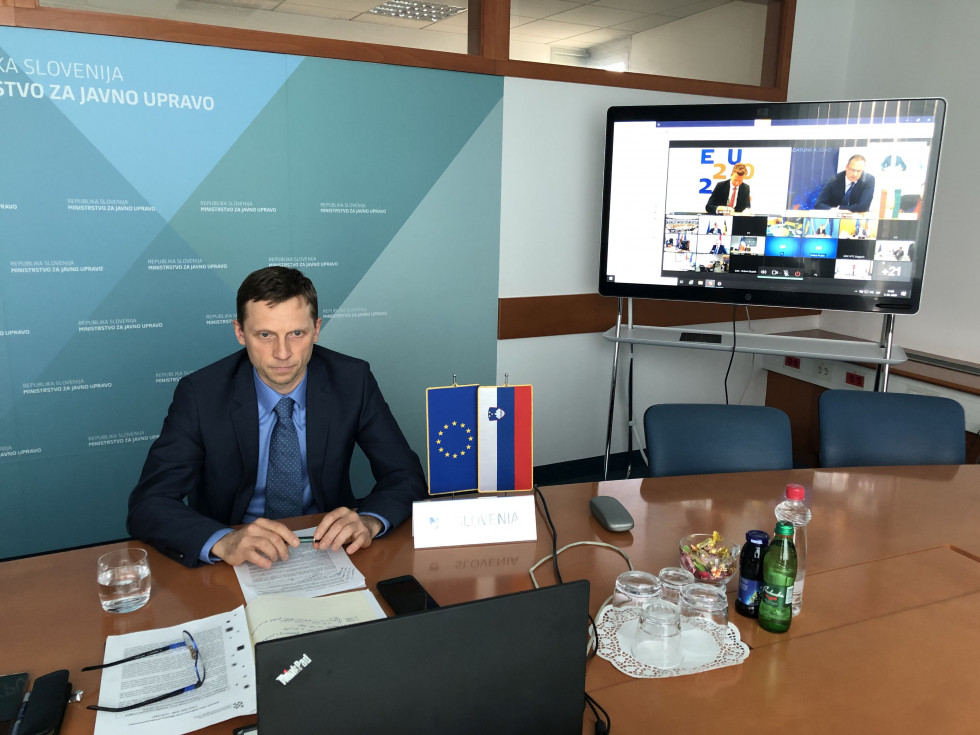Ministers on Priorities for Future Digital Development of European Union
After the outbreak of the Covid-19 epidemic, everyday life changed considerably and countries had to focus on priority issues such as limiting the spread of the virus, providing medical equipment, promoting research into treatment and vaccines, supporting jobs, businesses and the economy.
During this time, the digital sector played a key role, which was also emphasized by State Secretary Geršak, who added: “Digital communication and service infrastructure has been essential for the economy, government services, the education system and society as a whole. The majority of citizens were able to work, study and perform other activities successfully from home via the Internet. “The epidemic has accelerated digitalisation, while revealing some of the shortcomings and risks of digital infrastructure, to which we must pay special attention in the future.
The Ministers agreed that digital infrastructure has withstood the pressure of the Covid-19 crisis, but further investment in infrastructure is needed. Uneven digital development is widening the digital divide, so the issues of digital inclusion, digital literacy and Internet access need to be addressed in the future, not forgetting the development of advanced technologies, such as artificial intelligence and the development of digital skills, which have proved to be an important aspect during the crisis. Commissioner Breton emphasized the importance of strengthening the European Union's digital sovereignty and the cooperation and mutual assistance of the Member States.
At the end of the session, State Secretary mag. Peter Geršak emphasized the importance of artificial intelligence and the introduction of other advanced technologies in society, as more appropriate measures can be taken during epidemics and other crisis situations by using data. However, we must not forget that real digital transformation requires the trust of citizens, where raising awareness of the importance of digitalisation and its tools plays a key role. And just at the time of the epidemic, Slovenia took an important step towards achieving this goal.
Slovenia is one of the leading countries in the field of artificial intelligence in the world. In March 2020, the Agreement on the Establishment of the International Research Center for Artificial Intelligence (IRCAI) was signed, which will have its place at the Jožef Stefan Institute (JSI) and will operate under the auspices of UNESCO.
Over 180 researchers from various departments of the JSI, who conduct research in many areas related to artificial intelligence, will participate in projects implemented by the IRCAI Center at JSI. IRCAI will connect AI competencies in Slovenia and around the world and encourage and coordinate the establishment of similar centres around the world.


